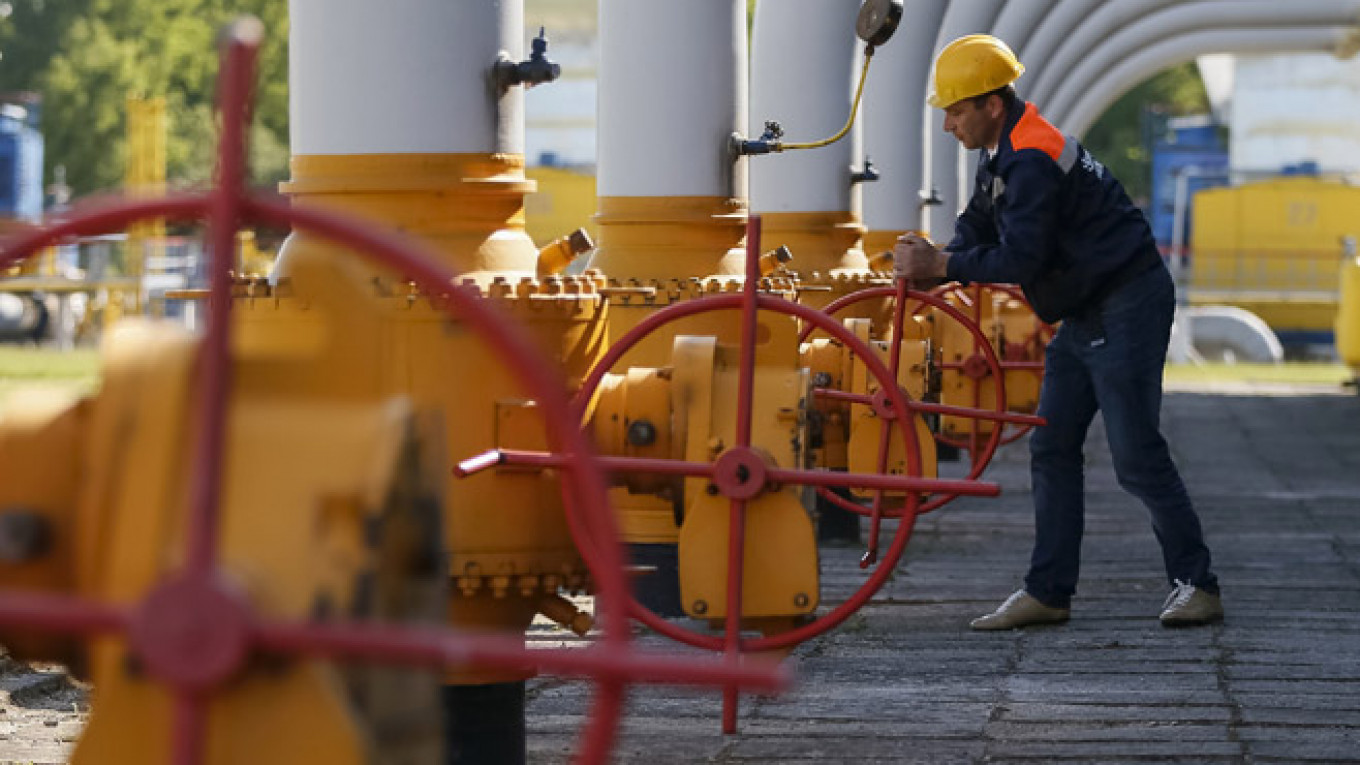BRUSSELS — Europe's best chance of standing up to the supply insecurity caused by the Russia-Ukraine conflict is a close-knit energy union to thwart Moscow's divide and rule strategy, a draft document laying out the next five years of EU energy policy says. A week ago, Russia cut off gas to Ukraine because of a row over pricing and unpaid bills.
Gas storage is ample and no nation has reported problems, but as the European Union relies on Russia for about 30 percent of its gas needs, roughly half of which is piped via Ukraine, it is nervous of knock-on effects if the crisis drags on.
"Geopolitical events, the worldwide energy competition and the impact of climate change are triggering a rethink of our energy and climate strategy,"according to a draft document on the "strategic agenda" for the next five years.
"We must avoid Europe relying to such a high extent on fuel and gas imports. To ensure our energy future is under full control, we want to build an energy union aiming at affordable, secure and green energy."
The document is expected to be published after a meeting of EU heads of state and government on Thursday and Friday.
EU nations are divided over the best response to the Russia-Ukraine crisis, with some favoring the Russian solution of seeking to bypass Ukraine via Gazprom's planned South Stream pipeline. The project was not mentioned at all in the draft document.
A final agreement between Gazprom and Austria's OMV over South Stream was expected to be signed Tuesday when President Vladimir Putin visited his counterpart Heinz Fischer in Vienna.
The giant pipeline would ship gas directly from Russia, via the Black Sea and into western Europe, making Ukraine all but irrelevant as a transit nation, but the European Commission — the EU executive — said South Stream breaches EU law on competition and intergovernmental agreements.
It has suspended efforts to make it conform, while Russia has gone to the World Trade Organization in protest at EU regulations.
Poland, a neighbor of Ukraine and traditionally wary of Russia, has spearheaded the idea of an energy union, which has been gaining Commission support, although it is likely to rile Euroskeptics, such as Britain, which insist on the right to make their own energy decisions.
The Commission is also pushing for the broader completion of the single energy market, with better interconnections across borders to share out available supplies and even out pricing differences.
Poland's idea is based on countering Gazprom's practice of negotiating different deals with different nations with a system for more transparent price negotiations, supervised by the Commission or another official EU body.
It argues that would foil Russia's strategy of divide-and-rule and lower prices for member states most dependent on Russian gas, who have historically had limited bargaining power.
Ahead of next year's 2015 climate conference in Paris, which is meant to agree a new binding agreement on climate change, the draft also says Europe needs to continue to lead the fight against global warming.
It will be signed by the next Commission president, possibly Luxembourg's Jean-Claude Juncker, although Britain is opposing his candidacy.
A new Commission will take office after the current set of officials stands down late this year.
German Chancellor Angela Merkel's party on Monday nominated Günther Oettinger for a second term as Germany's commissioner, preferably keeping the same job of energy commissioner. The nomination will have to be approved by the European Parliament and Commission president.
A Message from The Moscow Times:
Dear readers,
We are facing unprecedented challenges. Russia's Prosecutor General's Office has designated The Moscow Times as an "undesirable" organization, criminalizing our work and putting our staff at risk of prosecution. This follows our earlier unjust labeling as a "foreign agent."
These actions are direct attempts to silence independent journalism in Russia. The authorities claim our work "discredits the decisions of the Russian leadership." We see things differently: we strive to provide accurate, unbiased reporting on Russia.
We, the journalists of The Moscow Times, refuse to be silenced. But to continue our work, we need your help.
Your support, no matter how small, makes a world of difference. If you can, please support us monthly starting from just $2. It's quick to set up, and every contribution makes a significant impact.
By supporting The Moscow Times, you're defending open, independent journalism in the face of repression. Thank you for standing with us.
Remind me later.






